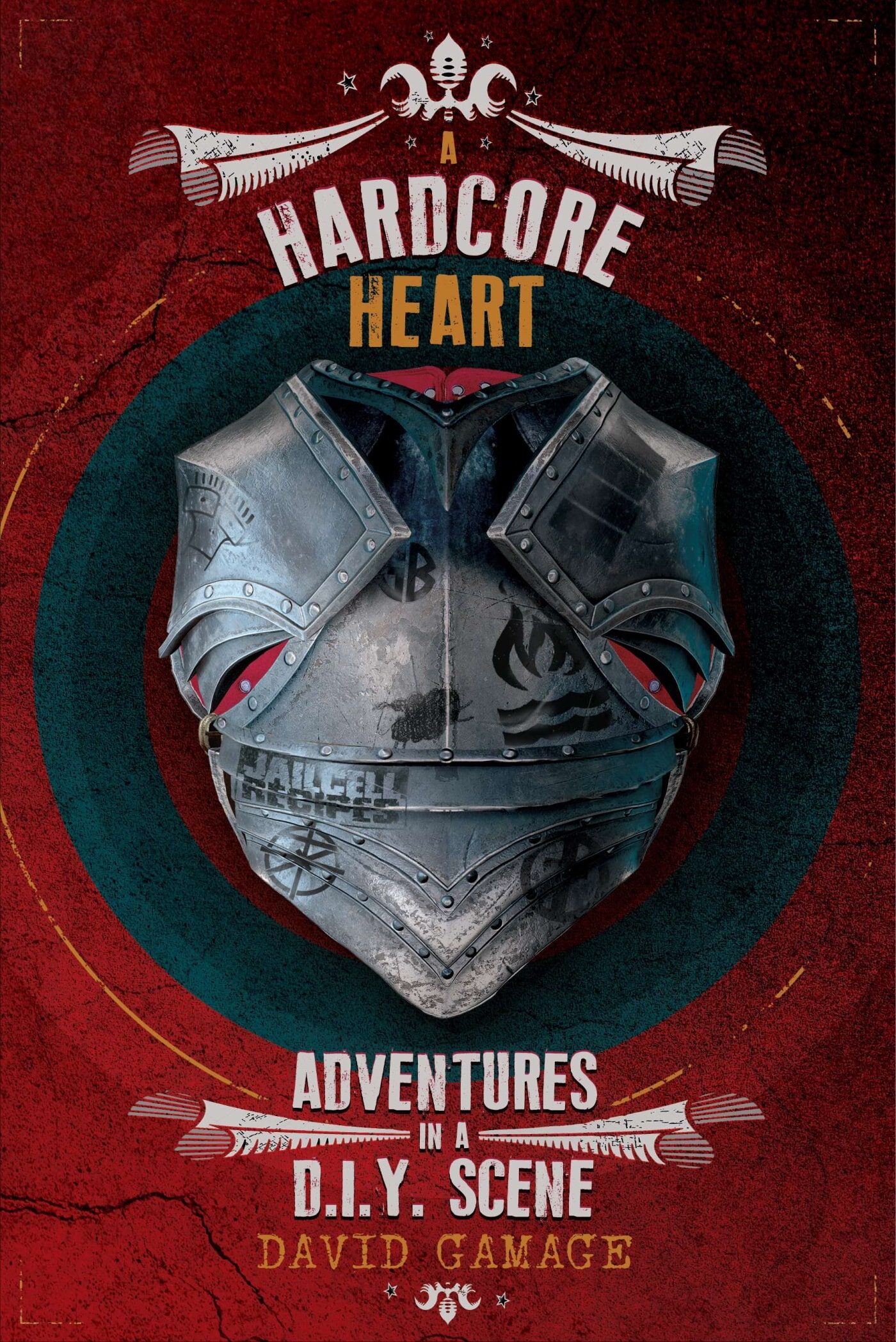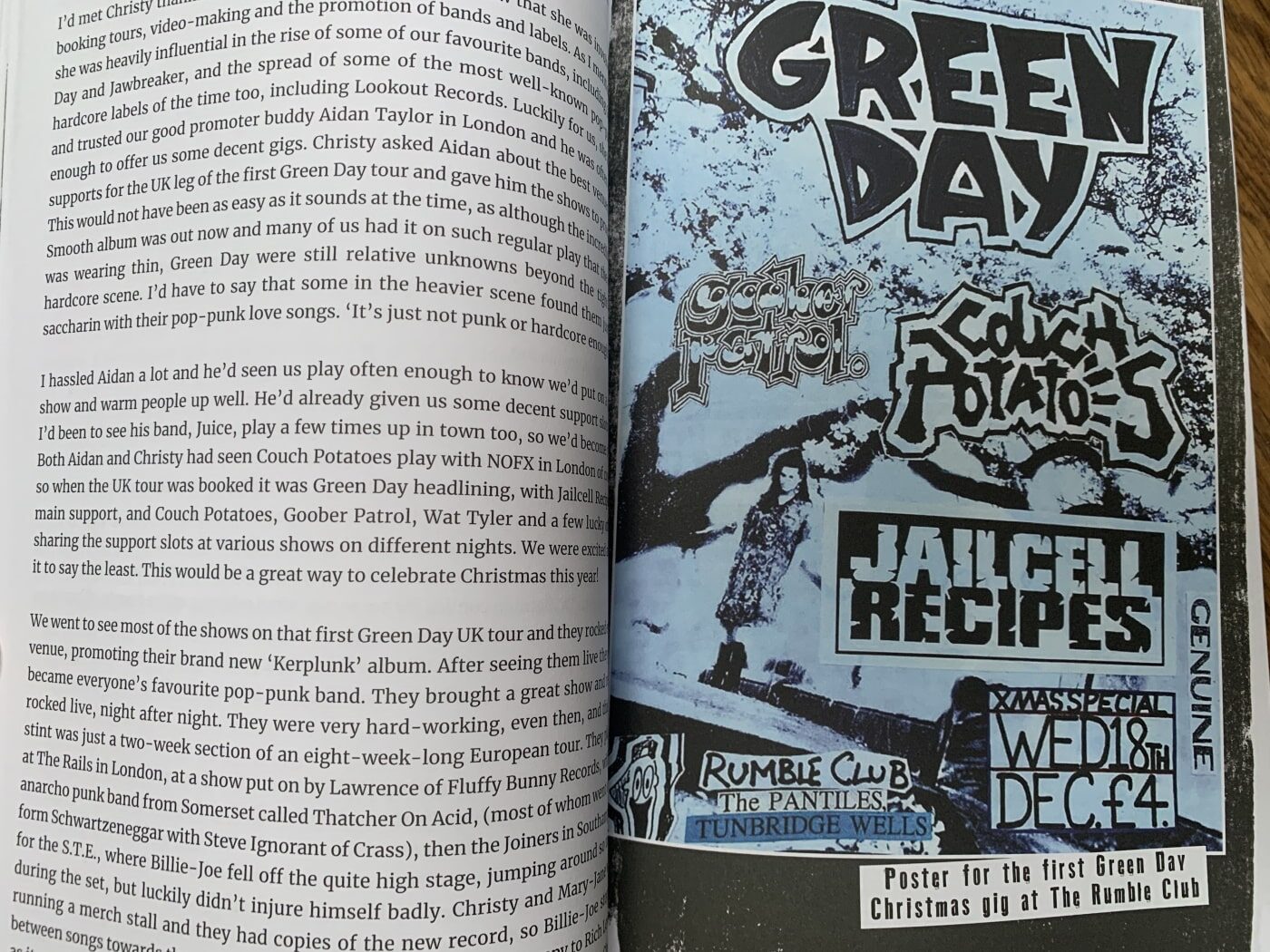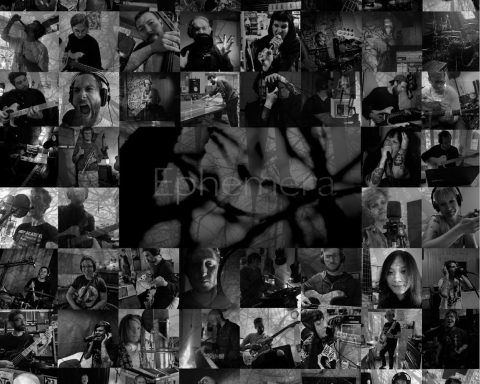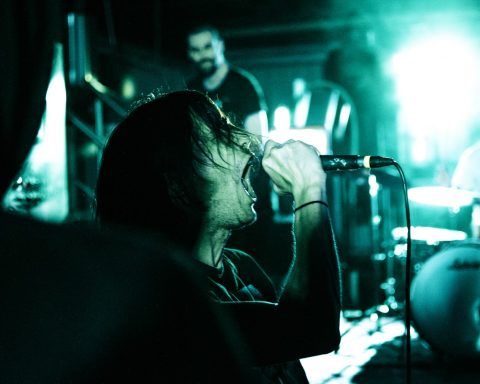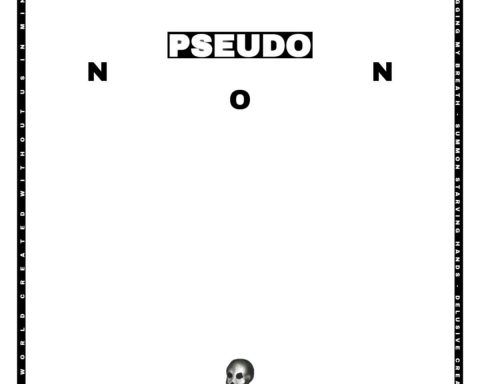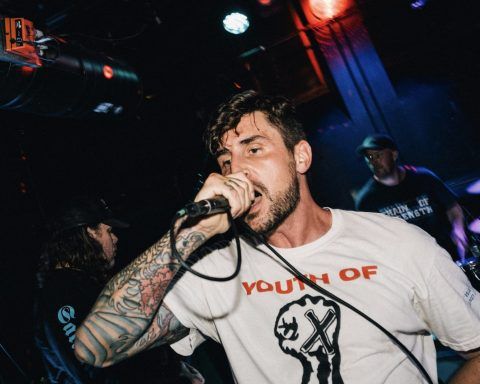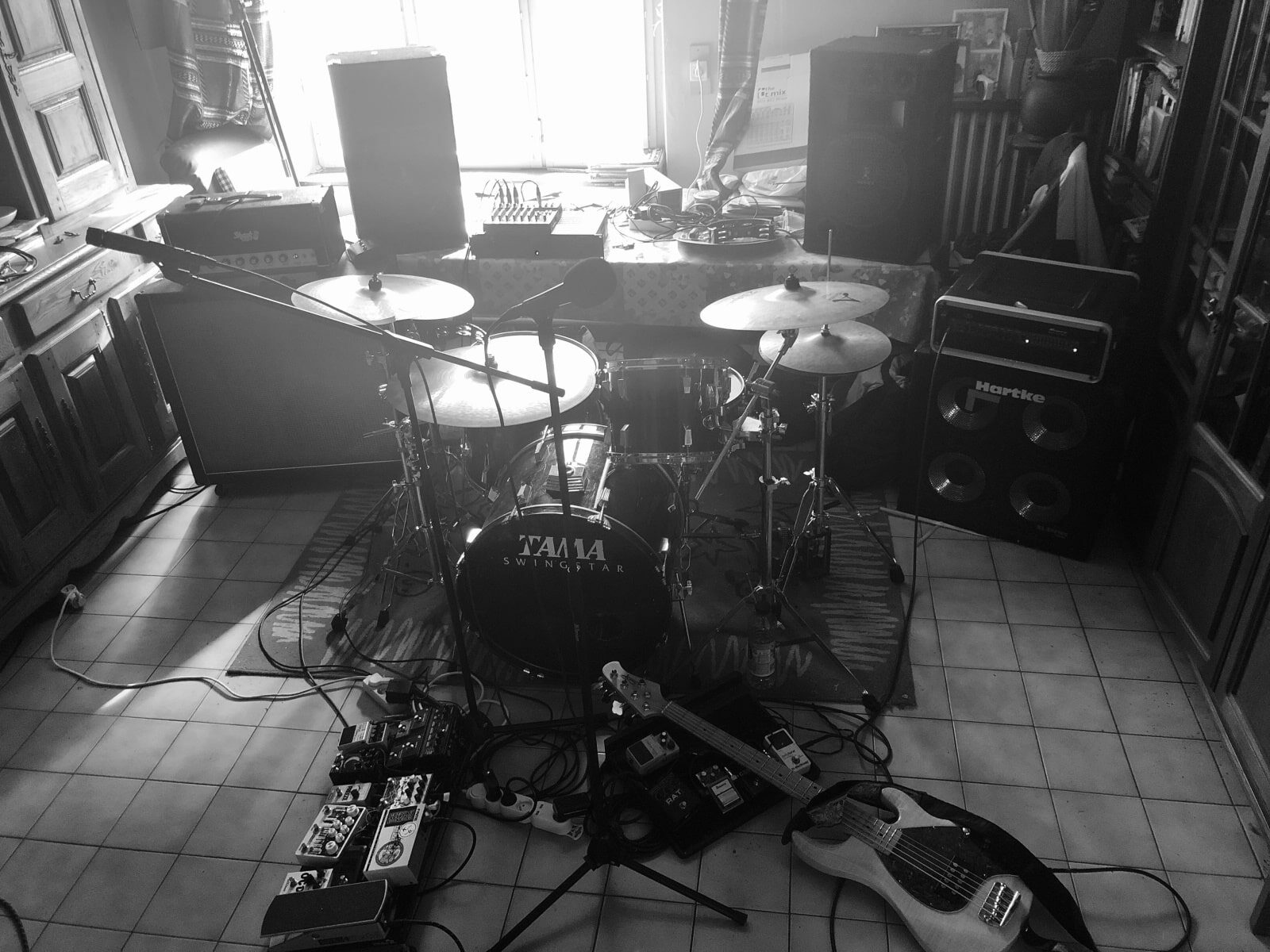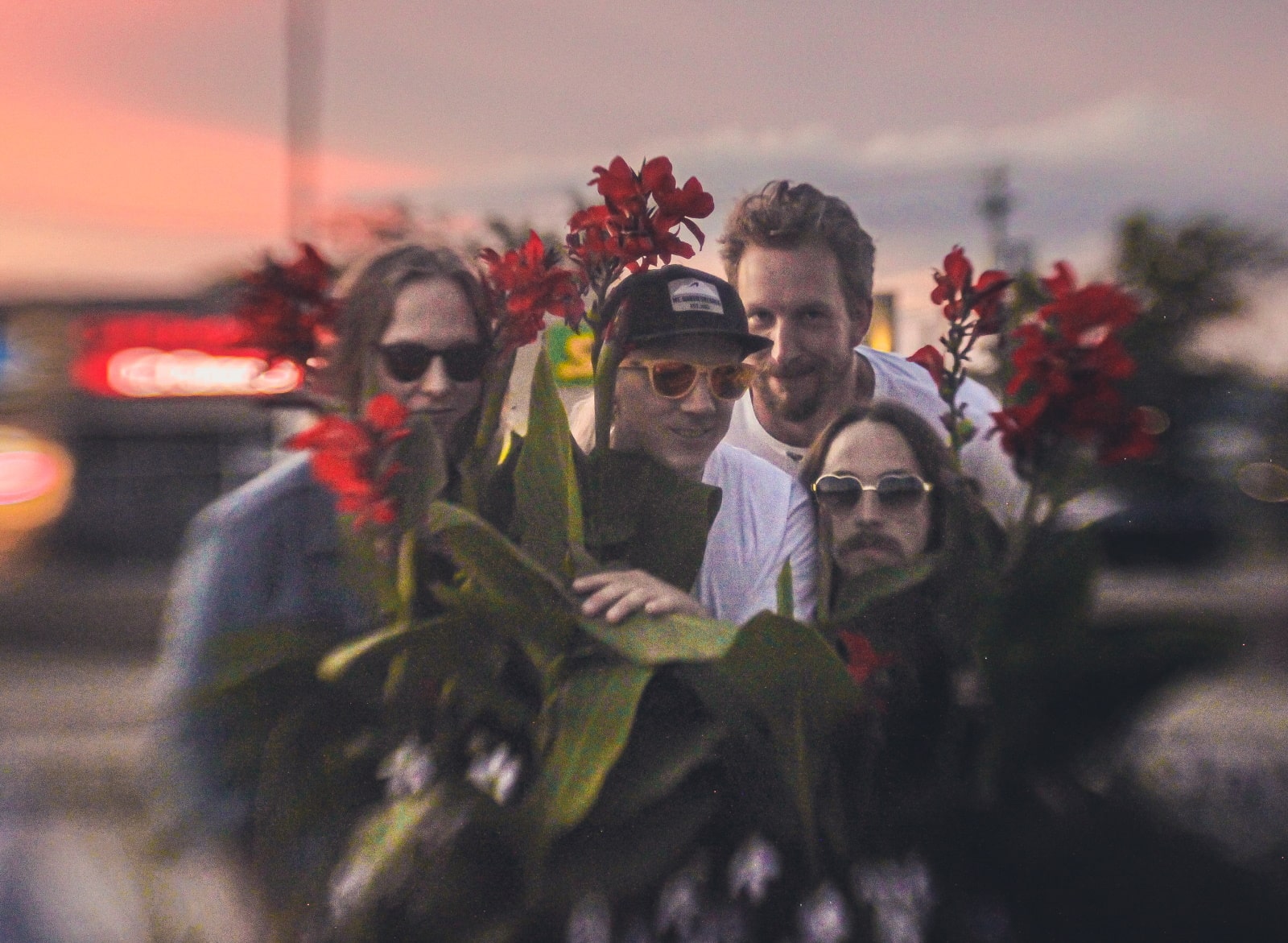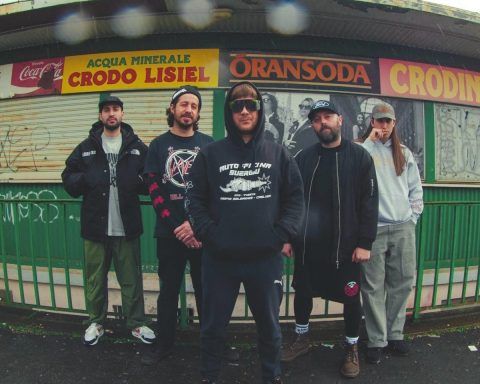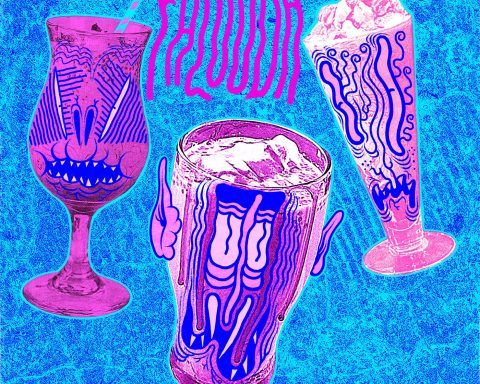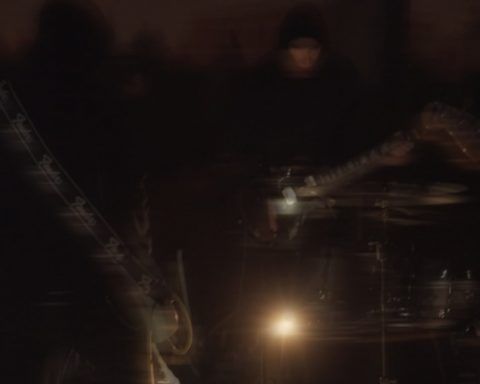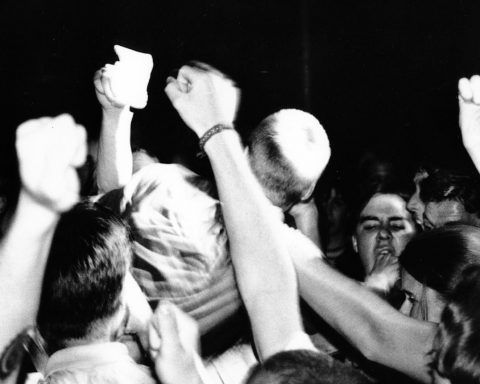Packed with first-hand stories and unpolished nuggets; ‘A Hardcore Heart: Adventures in a D.I.Y. scene’ by David Gamage (Earth Island Books) plots a path through UKHC in the ‘90s as it developed into an underground scene. Focusing on the people; artists, promoters, venues, record labels and fanzines, and following the evolution of the author’s bands, it looks at the intricacies of the post-punk genre and bursts with ‘straight from the horse’s mouth’ hardcore anecdotes that’ll keep you turning the pages. With hopes of getting to know David better, we asked him some questions about the book, his creative process, and UK hardcore scene, both back in the 90s and its modern state. Check out our interview below.
In the book, you’ll read about touring and gigs with hundreds of bands, including Green Day, NOFX, Alice Donut, Jailcell Recipes, The BBMFs, Majority of One, Spermbirds, The Babies Three, Understand, Samiam, Down By Law, Alloy, Hot Water Music, Bob Tilton, Tribute, Discount, Blue Tip, Leiah, Leatherface, Spy Versus Spy, Hunter Gatherer, Dismemberment Plan, Burning Airlines, Piebald and many more.
If you were ever in a band, then you’ll recognise and empathise with much of the narrative. And if you’ve wondered what it would be like to tour and release records at the underdog end of the alternative music scene, then this book will take you on an invigorating and enlightening roller-coaster ride.
Ian Glasper, author of ‘The Scene That Would Not Die’ says: “‘A Hardcore Heart’ is an invigorating time capsule, of a period before Instagram, Facebook and MySpace, even before mobile phones, sat navs and Google Maps. It wasn’t easy (nothing worth doing ever is) but we somehow made things happen; we stubbornly battered our dreams into reality and bullishly ignored anyone that told us it couldn’t be done. It was a truly inspirational time, when it seemed anything was possible, and a two-bit hardcore band (and I use that term endearingly, because that’s what we all were, in the grand scheme of things) from a leafy town in Kent could share stages and records with the best the world’s hardcore punk scene had to offer.”
David Gamage is a musician and author. He’s played in bands since his teens and is an active part of the alternative music scene, having promoted gigs, edited a fanzine, and run a record label. David lives with his wife and two sons in East Sussex and when he’s not playing with his family and their cats, he enjoys travelling, strangling his guitar, and introducing others to obscure rock bands. We had a great pleasure diving deep into the story of this amazing project. Check out our full conversation below.
Hey David! Thanks so much for taking some time with us! How are you? How’s 2022 been for you so far?
I’m very well. Keeping busy and creative, having released both new books and records, and trying to stay positive despite all the adverse news this year.
Awesome. Please tell us a bit about your background as a musician, your early days and what made you gravitate towards punk music and active involvement in the scene.
I have been playing the guitar since I was a teenager and started off listening to rock and heavy metal with my friends. We’d try to play along and teach ourselves from books, developing a style of playing as I went. Checking out some of the bands on their T-shirts and thanks lists I got more and more into hardcore and punk. Bands like Descendents and Dead Kennedys.
The more I got into the punk side of things, and especially the positive hardcore message from bans like Gorilla Biscuits, 7 Seconds and Minor Threat, the more I wanted to be a creator rather than a consumer. As well as playing in a band I started to put on gigs and then ran a fanzine too. Just small things that made me feel part of a creative community. A lot of my friends were getting into alternative music at the time too, so we were all trying out new ideas together.
Being a great fan of printed zines and the zine culture from the 90s in general, I’m super curious about this part of your creative practice. What were some of the finest publications of that era and what can you tell us about your own publication?
By the nineties, I would say that punk and the hardcore scene had developed from an angry fad into an underground culture of people who were walking the walk, not just talking the talk. Straight edge was a big thing and vegetarianism/veganism was becoming popular too. There was so much anti-authoritarian sentiment and plenty of alternative ideas being kicked around. One excellent way to share these ideas was fanzines and they really took off. You could produce your own with a photocopier and a long arm stapler and they couldn’t be censored or controlled.
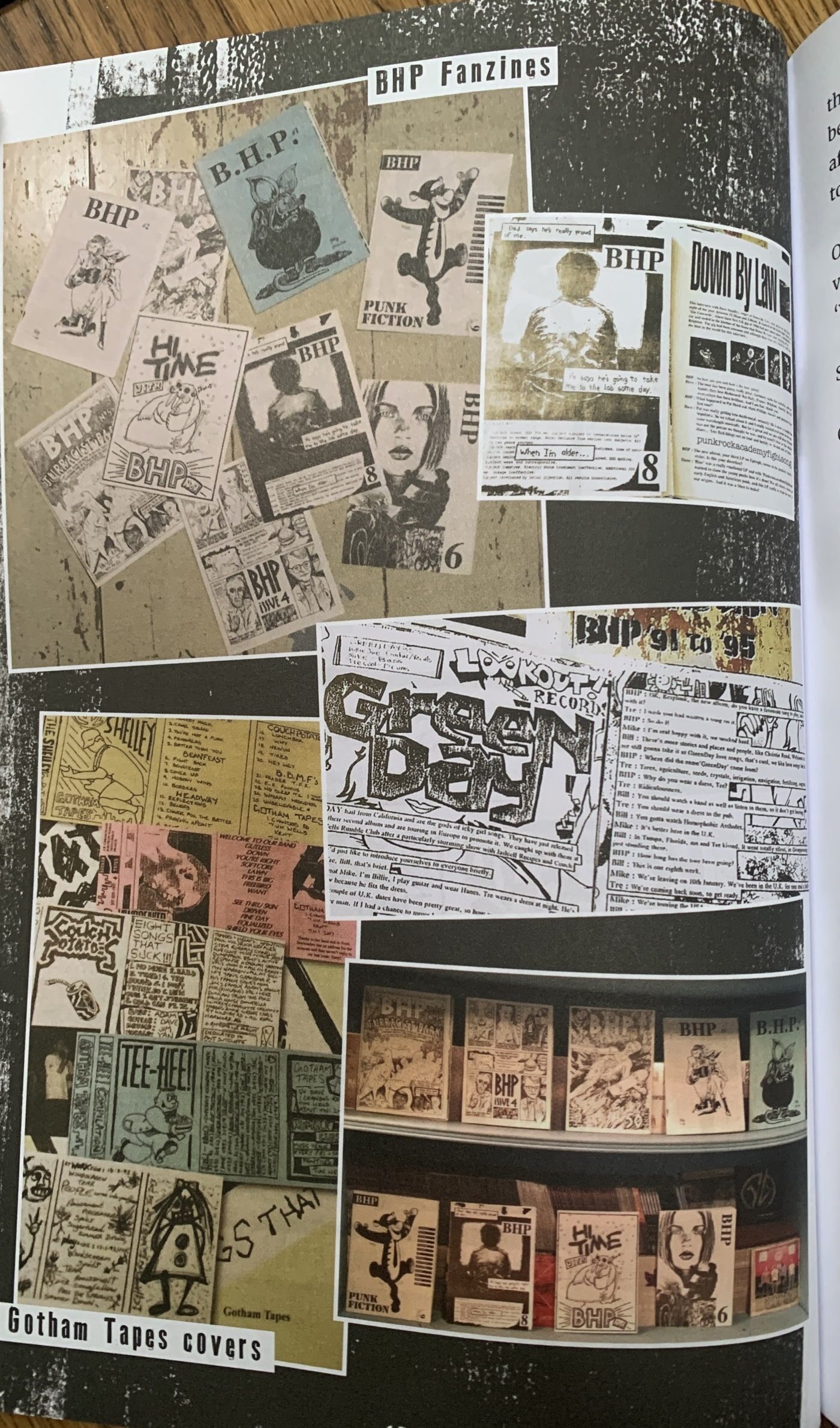
There were loads of great zines and I read Suspect Device, Armed With Anger, How We Rock, Cloth Ears, Ripping Thrash, Useful Idiot / Dragnet, Garbled, Artcore, Take a Day, Ernie, Noisefest, Riot, No Idea, Hormone Frenzy, Raising Hell, Less Than Brainless, Trinkets and Baubles, Fear and Loathing, Prototype, Gusset, Raising Hell, Gadgie, Vision On, Grim Humour, Synthesis, Warzone, Dead Beat, Zips and Chains, Chemical Warfare, Catalyst, Mass Movement, UK Resist, HAGL (Have a good laugh), Fracture, Trust, Ox, Slug and Lettuce, Lookout, Flipside, Profane Existence, HeartattaCk, MRR / Maximum Rock n Roll and Thrasher mag. Some these are still going strong.
And nowadays, I really like to check out the good blogs too, like IDIOTEQ, NoEcho, PunkNews, Brooklyn Vegan, Punk Rock Theory, Thoughts Words Action, etc.
Has the intersection of attending, being active with bands, etc. and documenting it been an interest of yours throughout your involvement in the scene? Tell me about your relationship with punk culture and how it has found its way into your writing.
Not really. Early on I just wanted to play in a band, go to gigs and hang out with my friends. At the time we would be making music or skateboarding and it was all very much for the moment. The fanzines part of it was much more about sharing information at the time, even just letting people know about gigs that were coming up or records that were being released. This was pre internet and mobile phones, so no social media, emails or texts. Fanzines, flyers and posters just added to the word of mouth and only became a culture to document in retrospect.
I have 2 sons that I was discussing some of this with and they suggested that I wrote some of it down. I suppose I do look at this through rose coloured glasses but I am still very much a part of the scene, playing in a band, running a record label, and now writing books.
What made you decide to write ‘A Hardcore Heart: Adventures in a D.I.Y. scene’?
As I mentioned, I was chatting with my sons and a few friends and kept regaling them with stories of various gigs and tours. They suggested I write it down, which although making me feel a bit old, did allow me to revisit my diaries and memories of what happened and gave me a few good laughs along the way. An alternative ‘Spinal Tap’. The process also gave me a great opportunity to re connect with some good people I had lost touch with over lockdown.
How did you begin writing, and what was your initial exploration of the full scope you wanted to touch in this release?
For me that was simple. ‘A Hardcore Heart’ is about the hardcore scene and its culture as a whole, but is based around the gigs and tours of the first three proper bands I played in; Couch Potatoes, Joeyfat and Rydell. Whilst I knew that alone would not be of much interest to most people it gave me a definite parameter in time, as well as a massive load of guidance from my notes, gig posters and diaries. So an easy place to begin. We were lucky enough to be part of the scene at a really interesting time, and even more fortunate to share the stage with some truly awesome bands.
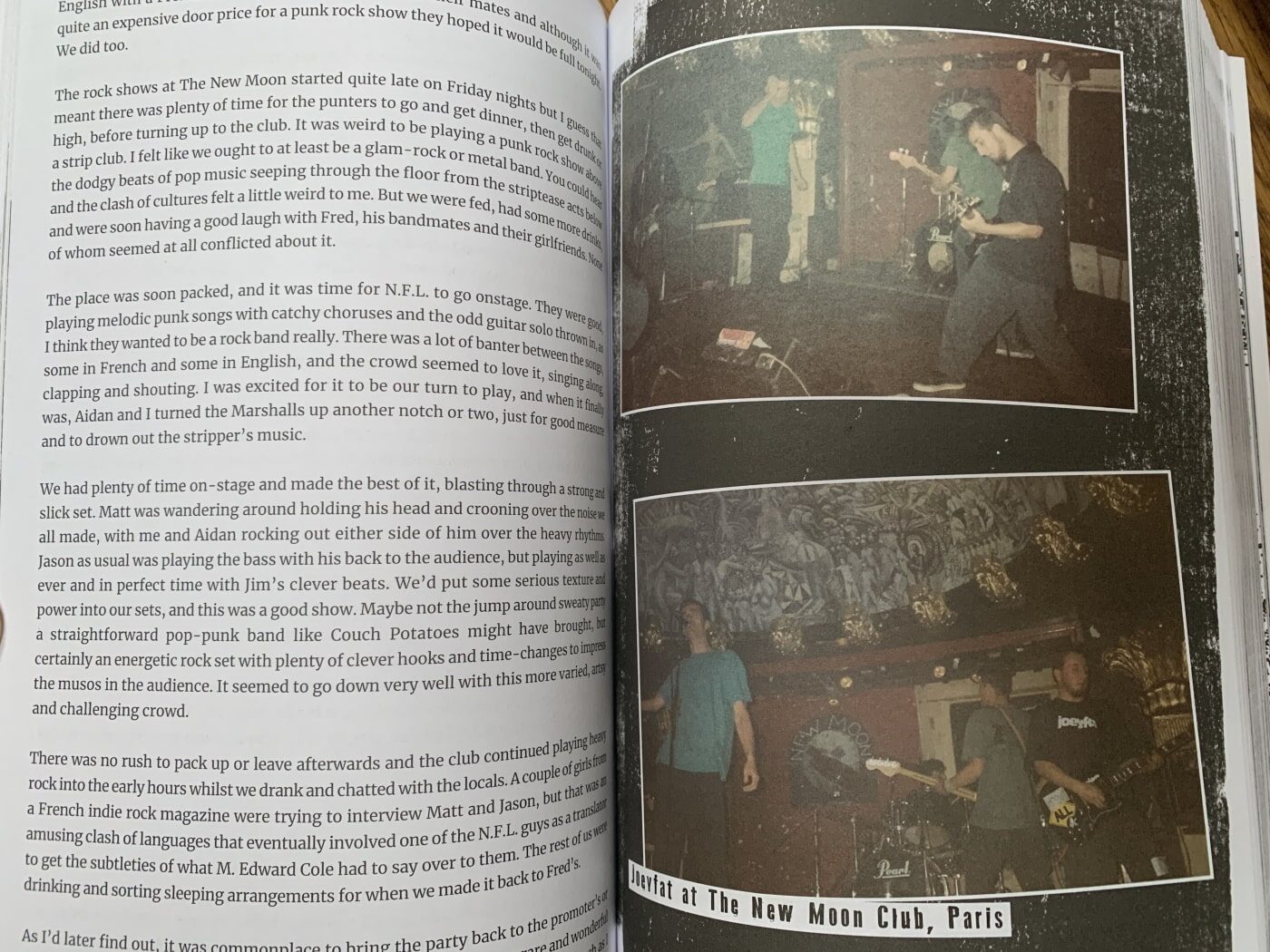
Hardcore was moving from the underground to a more mainstream music style so many of these bands became incredibly popular. I wanted to speak about them as people, as the kids we met and messed around with. The venues and promoters involved too. It was the people that developed the scene and I had some pretty insightful and often funny first-hand tales about many of them that I was encouraged to share.
What was the process of inspiration like for you? Were there any good examples that you looked up to while approaching this project?
Just before the Covid lockdown came along I’d been writing a new record with my band Come the Spring. All the restrictions imposed obviously stopped gigs and a lot of things, but we had already recorded the new music. Our current singer got a bit flaky, but I had long had the idea to work with a friend of mine across the pond in the USA as vocalist, so he produced new lyrics and recorded them at home during lockdown.
We changed the bands name to The Atlantic Union Project to represent this.
This illustrated clearly to me that creative projects could still progress and working from home writing a book was an even easier undertaking if a little more time consuming. I had read a few good books about the hardcore scene, the first probably being ‘All Ages’, but very few were available and most seemed to be written about larger US bands by third party authors some of whom weren’t even there.
I wanted to write a more personal first-hand account, but also knew it shouldn’t be either a boring tour diary or some kind of ego trip. I tried to use my personal experience to share knowledge of great bands and venues in a growing scene, many of whom were, and even still are, more or less unheard of. The thing is some bands got lucky and made it big but, many others that you may not have heard of are just as good and are just as important a part of the alternative scene. Furthermore, none of them would exist without the venues and promotors, fanzines, record labels and radio stations too so I wanted to talk about all of that and put it into context.
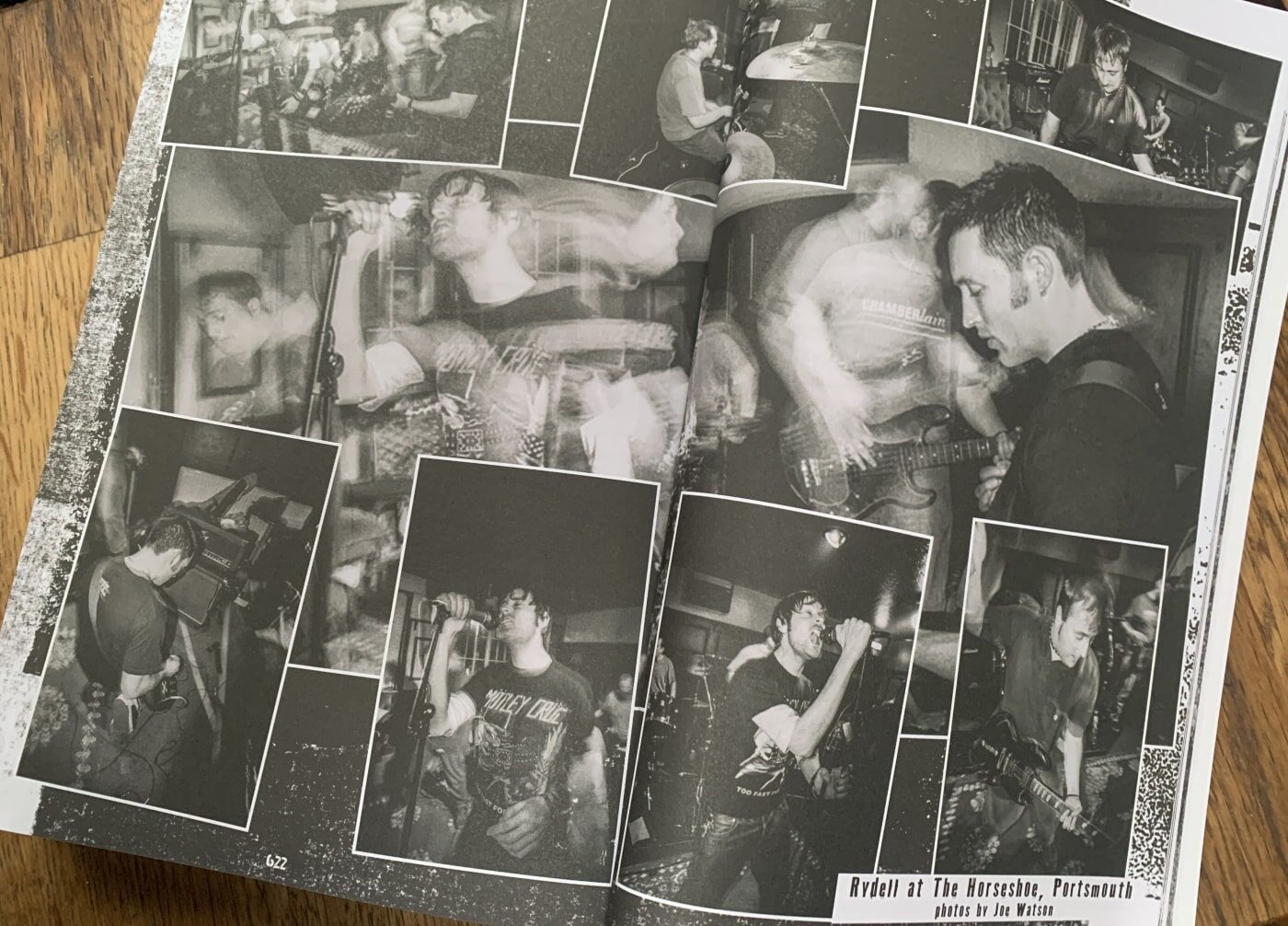
What do you think is your book’s main contribution to the body of knowledge on the UKHC and punk music in general?
Although there are a few books about punk in the UK there is actually very little about the later hardcore scene and how it developed. I wanted to help rectify that. Although this was a project that started out for me and my friends it has developed much more broadly now and has hopefully become quite a readable document. The book looks at the minutae of the scene and the truth of it. It is a rare first-hand account. I would hope there is some obvious benefit from that. I would also be very glad to help shed some light on some of the lesser-known bands too.
Ok, so how about the modern day hardcore and punk rock in the UK? How would you assess its current state in general?
For a while there I was indeed worried that the alternative music scene was drowning in un-original mediocrity and flailing around in a sea of digital downloads and social media. That may, of course, just be me getting older. But recently I have been inspired again by the resurgence of new bands playing clearly heartfelt music and bringing their own worthwhile message. Running a record label you get to see the pros and cons of vinyl, cd’s and digital channels, and receiving hundreds of demo tapes you get a flavour of the talent out there. Maybe it’s all the negative propaganda going around and the poor state of government around the world, but there’s a backlash of righteous anger and alternate ideas now, and that often takes its shape through music and underground culture. It’s great to see, and it’s taking place all over.
How has your honest personal take on the hardcore scene in general changed over the years? Growing up, haven’t you lost some heart and passion for music?
Obviously, as you get older, ‘life’ stuff can take precedence, but if I ever need inspiration, I will put on one of my favourite records, maybe something by Hot Water Music, or GB’s ‘Start Today’ and I will instantly be energised again. I definitely go to fewer gigs now; I can’t always afford the time or money. But still being very much part of the scene maybe I have a uniquely positive perspective on it and hearing new releases that are coming out still excites me. Truly, I am less enthused by some of the music but, I don’t think that I will ever lose my passion for the scene in general.
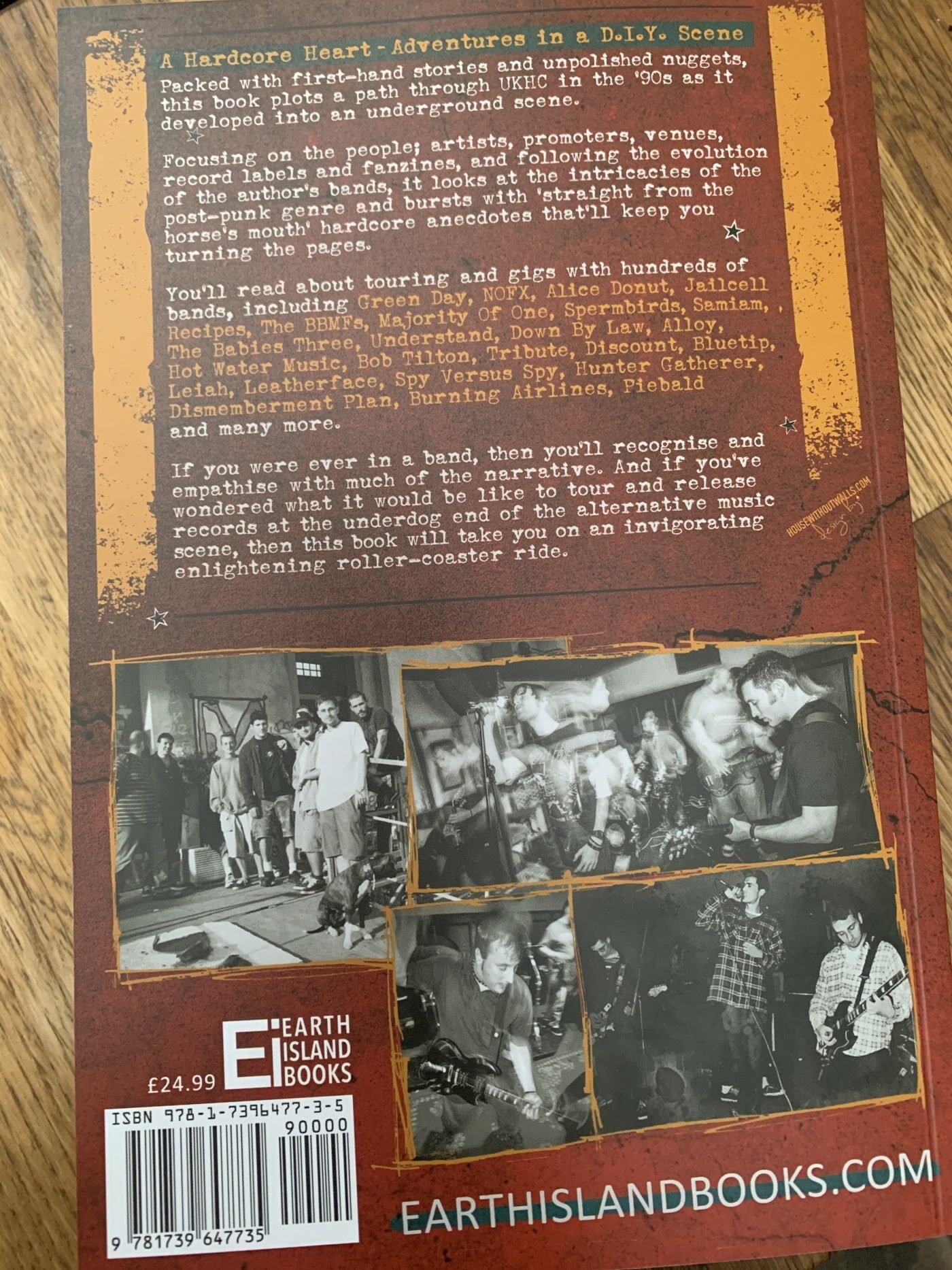
How do you feel the digital era and all the modern tools bands have nowadays have changed the game of DIY music and punk rock?
The digital era has changed the music scene massively. It is great that you can get a video out quickly and cheaply on Youtube now. It is great that you can download and stream any music across digital channels and check out new playlists on Spotify so easily.
It is also pretty cool that you can listen to podcasts and check out so many good zines and blogs online easily, even having their updates pop into your emails or text messages. Independent bands can do this themselves, up to a point, without even needing a record label.
BUT, without wanting to sound like an aging luddite, all this easy and instant availability have taken away some of the credibility of the scene and the bands own hard-worked creativity. It may well be exclusive or nerdy to say, but if you have had to dig in the crates to find that vinyl record or discover a special book or event, it will always mean more to you. We all love the tactility of an album cover or lyric sheet.
It’s a double-edged sword; easier to get music out there, but even the good stuff can get drowned in a sea of noise. It is hard to feel a kinship with something so distant, so punk rock needs to remain in the real world with real gatherings / gigs and real products too. Personally, for me, a mix of both worlds seems like the way forward for now.
Can you share some of your favorite, noteworthy active bands, labels, and zines worth a check these days?
Absolutely! There’s plenty going on. Check out:
Bear Away, Calm., Stayawakes, Barking Poets, Hell Can Wait, Wonk Unit, Abraxos, and Zero Again in the UK,
Abermals, Verse Chorus Inferno, Amalia Bloom, Born Infected, All Aboard, Rites, Eretia About Leaving, I Like Allie and Low Standards High Fives in Europe,
Neckscars, Tired Radio, Jukebox Romantics, Kid You Not, The 1984 Draft, Scary Hours, Sleave and Dreaded Laramie in the US.
Good labels would be Sell The Heart, Wiretap, Sinking Ship, Bypolar, Iodine, Shield, Brassneck, Eternalis, Bomber, Non Ti Seguo, Bearded Gentlemen, Rabat Joie, Waterslide and of course, Engineer Records.
Good publishers would be PM Press, Di Wulf, Hope Collective, Cherry Red, and of course Earth Island Books.
Zines look to: Lights Go Out, Gadgie, Suspect Device and Artcore, are still in print on paper, Fear ‘N’ Loathing and Mass Movement have gone online now, alongside other good blogs such as Idioteq and Thoughts Words Action.
Awesome, thanks for that!
Ok David, so what else? Looking ahead, what are some of your plans for the rest of the year and beyond? Do you have plans to do other writing?
So, ‘A Hardcore Heart’ and The Atlantic Union Project’s ‘3482 Miles’ EP have only just come out, so I guess I’ll be pushing those for a while yet. But I have already started work on a new book about some of the great Engineer Records bands and am gathering notes on that as we speak. I’m always planning something, whilst stroking my cats and chuckling. Ha ha.
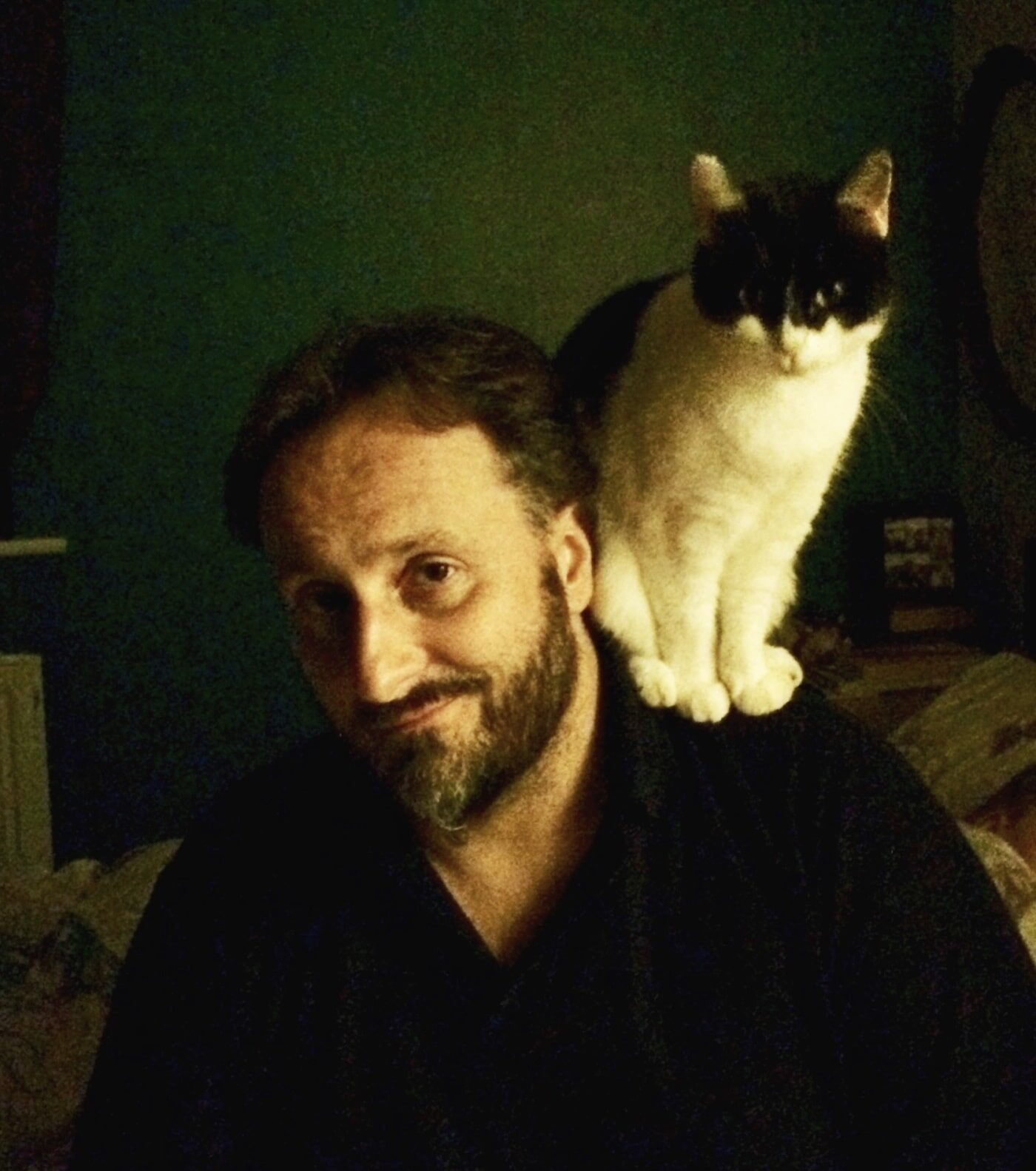
Welcome to the cats club. My Devon Rex is looking at me now! Thank you so much for your time and honest thoughts you shared with us. Feel free to add anything you feel we missed here and take care! All the best!
I really enjoyed the interview, thanks To Karol and IDIOTEQ for the opportunity. Obviously, I’d say support the small and independent, work on your own scene, and go out and get on with it.




